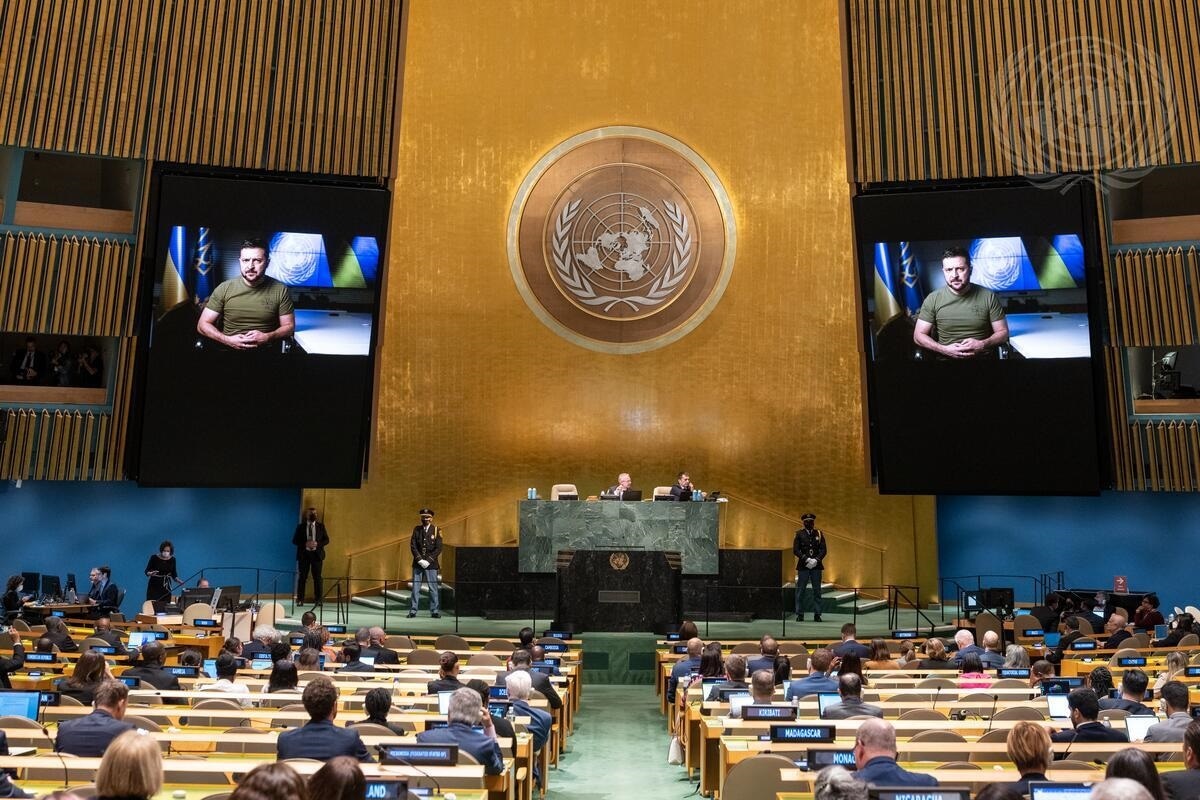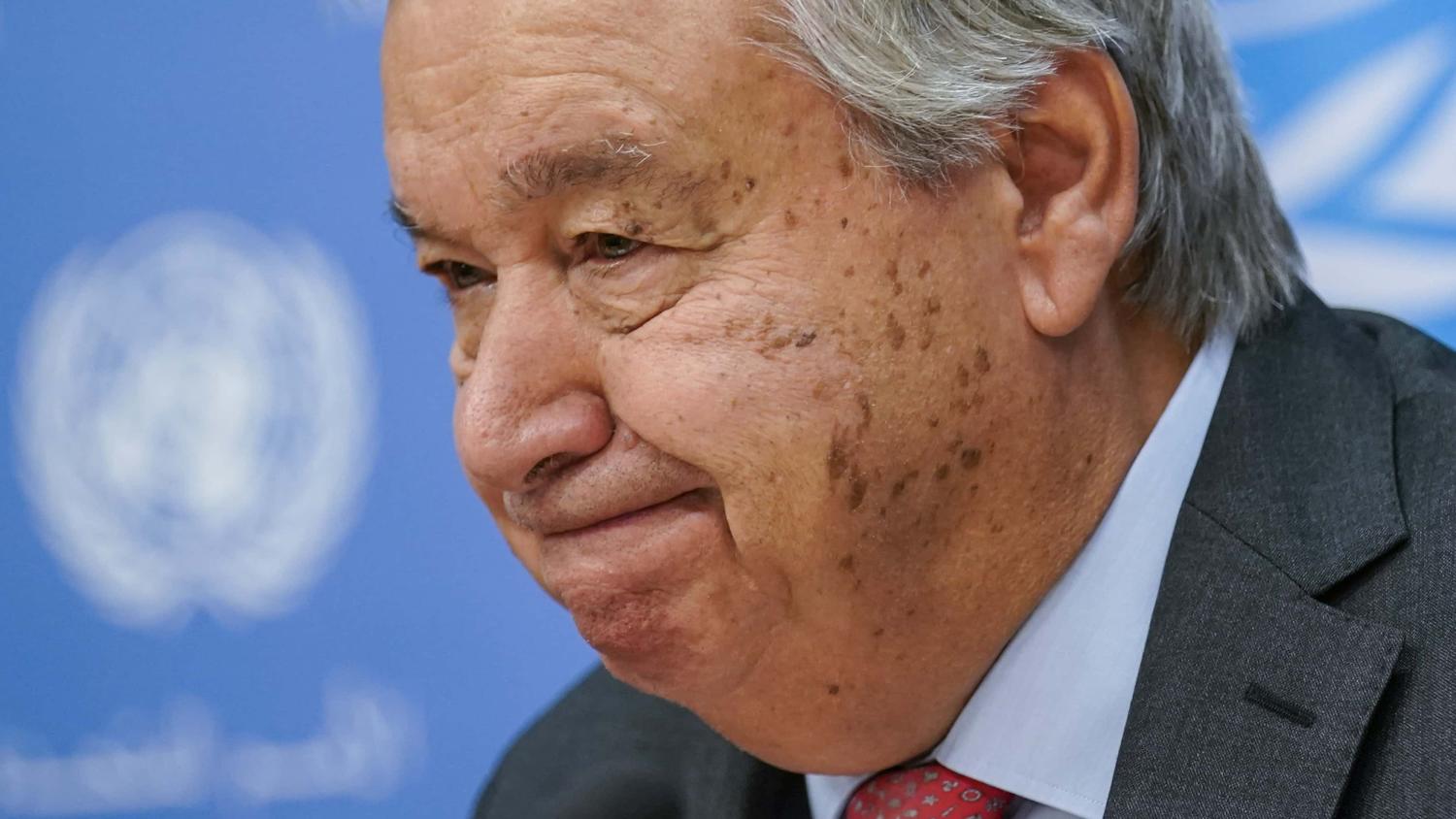The world’s premier annual rendezvous of diplomacy – the United Nations General Assembly – opens its 78th session in New York City tomorrow, the first fully in-person meeting since the beginning of the Covid-19 pandemic. Notable absentees will be the talk of the town. For many, the absence of some of the UN’s most powerful nations shows a shifting priority in diplomacy, and reflects an increasingly fragmented world.
The guest list
All eyes will likely be on Ukraine’s President Volodymyr Zelenskyy, who is expected in New York City to attend the high-level General Debate on Tuesday and a Security Council meeting on Wednesday about the war ravaging his country. However, many big powers won’t be around to hear him speak.
Four out of five leaders from the permanent members (P5) of the UN Security Council won’t be present. The only P5 head of state attending is US President Joe Biden. While it’s usual for the Chinese and Russian presidents to skip the event, it’s a little less common for the leaders of France and the United Kingdom. The Quai d’Orsay explains its decision as driven by the impending visit to France of Britain’s King Charles from 20–22 September and a papal visit in Marseille, but the timing of these visits has raised eyebrows. India’s Prime Minister, Narendra Modi, is another notable absentee from this year’s list of speakers.
For many diplomats, the absence of big powers sends a signal that the United Nations may not be the main platform for multilateralism anymore – to the great dismay of smaller powers. As one diplomat put it: “you have all the small and midsize countries at the UN, [but] they are not in one of those coalitions, and they make a difference in many cases,” referring to alliances such as the G20, G7 and BRICS. “For us, this is the place where we should discuss [our issues] and they should bring their leaders in.”
Last year, UN Secretary-General António Guterres sounded the alarm about a world becoming more divided; this year’s General Assembly may be the manifestation of that trend. With the expansion of BRICS to include six new countries, as well as recent high-level attendance at G7 and G20 meetings, smaller but less divided forums may prove more efficient for some leaders than the UN General Assembly.

Still, New York City will be full of black cars and high-level attendees from other countries. The first day of the General Debate is not likely to lack content, with leaders from the United States, Brazil, Türkiye, Ukraine, Germany, Iran and Nigeria expected at the rostrum.
There is also some ambiguity in this year’s list of speakers due to an increasing number of countries affected by coups d’état over the past few years. Niger and Gabon, for example, are still listed as represented by their head of state, despite both leaders being deposed. In previous years, similar situations, such as the coup in Myanmar, have been handled by having the ambassador from the elected government speak, as the United Nations often refuses to recognise military juntas. Nevertheless, experts will keep an eye on those countries for any potential surprises or at least to hear any appeals the deposed governments might make.
A spotlight on developing countries?
The perceived snub from the P5 feels bigger for developing countries as this year’s General Assembly aims at putting the spotlight on the UN’s 17 Sustainable Development Goals (SDGs), and the lack of progress in implementing them. The SDGs are designed to serve as a “shared blueprint for peace and prosperity for people and the planet”. This Tuesday and Wednesday, leaders will discuss how to accelerate the implementation of these goals.
Six other summits will also take place this week, most of them oriented towards the developing world. Those summits will tackle issues such as climate change, universal healthcare, pandemic preparedness, and development financing. With six summits, one high-level debate, and hundreds of side events all taking place in a handful of days, the challenge delegations will face is simply keeping up with everything and trying to engage in significant conversations.
Politically, there will be an effort by the European Union, Saudi Arabia and the Arab League to revive discussions on the Middle East Peace Process and the Israeli-Palestinian conflict. Secretary-General Guterres will also meet with representatives from Ukraine, Russia, and Türkiye to try to resuscitate the Black Sea Grain Initiative.
However, while most countries are keen to focus on the meeting’s aims and listen to the needs of the world’s most affected countries, there is concern that Zelenskyy’s highly anticipated presence will take the spotlight away from other leaders’ appeals and priorities.
If, for many, the absence of Macron (France), Sunak (UK), Xi (China) and Putin (Russia) represents a potential shift in the trajectory of the United Nations and global diplomacy, António Guterres, in his annual press conference previewing the high-level week, tried to show some optimism. When asked about the fragmentation taking place, he said: “We have some symptoms, but we are not yet in an irreversible situation. So, we are clearly on time to avoid it. But we are seeing some aspects in which we see the risks of division piling up.”

